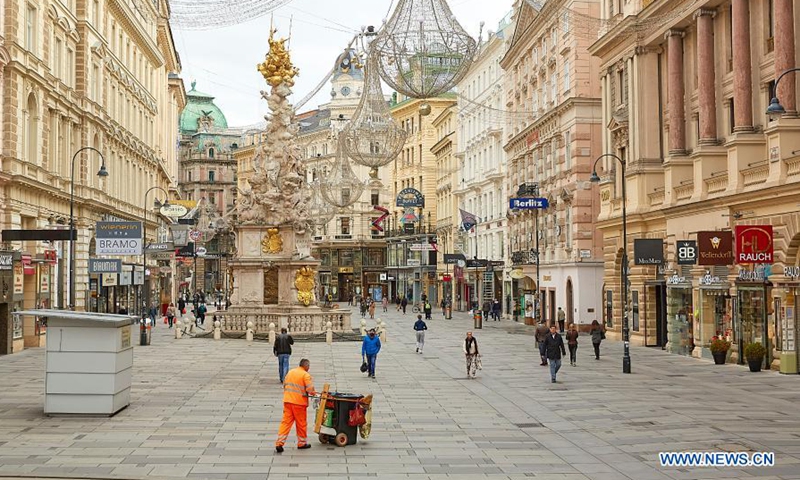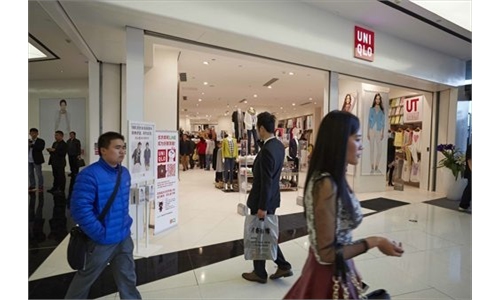
Photo taken on November 17, 2020 shows the street view of Vienna, Austria. Photo: Xinhua
China is the most important long-haul market for the Austrian tourism industry, the head of the Austrian national tourism organization said, adding that tourism from China to the Alpine country has a story of big success that is set to continue as vaccinations fuel hopes of lifting travel restrictions.
"In 2019, we welcomed 1 million Chinese travelers. That means that within 10 years, the number of Chinese guests in Austria grew by 400 percent," Lisa Weddig, Managing Director of the Austrian National Tourist Office (ANTO) , told the Global Times on Monday.
As well as being the top long-haul market, China ranks sixth among all Austria's markets including the European source markets, according to Weddig.
"Chinese travelers prefer to spend their stay in Austria in Vienna, Salzburg and Innsbruck. That is why the significance of Chinese tourists is particularly high in the urban regions. And we must not forget that Chinese guests in Austria belong to those who chose high-rating accommodation and who love shopping," Weddig said.
"In China, Austria is very popular for its cultural heritage, especially classical music. Music by Mozart, Strauss and many others is familiar to many Chinese people," she said, noting that her country is looking forward to being able to welcome travelers from Asia and China soon.
During the current summer season, Austria is already seeing signs of hope with its regular guests from Europe starting to come back. Nonetheless, travelers from Asia, especially China, remain missing as travel restrictions persist to prevent the spread of the raging Delta variant of the coronavirus.
Austria has established a vast set of security measures to enable safe and comfortable holidays and support local tourism, an important part of the Austrian economy.
"Travelers from most countries are already allowed to enter Austria without quarantine as long as they are fully vaccinated but you always have to facture in the measures when returning home. There is currently no flow of tourists between China and Austria. We hope that with ongoing vaccinations in our two countries this situation will change in the future," Weddig said.
At the moment, Chinese business travelers, students, Chinese citizens with Austrian residence permit or people travelling because of urgent family or medical reasons, are allowed to enter Austria without quarantine if they are fully vaccinated.
"It will certainly take a couple of years to return to the level we used to have," according to the head of ANTO.
In 2020, tourism in Austria saw a drop of 30 percent in overnight stays from the previous year. While this is a dramatic drop, given the circumstances and compared to other tourism destinations, this was actually a decent result. The tourist office hopes to repeat these results in 2021.
"For the future, we believe in a strong cooperation between Austria and China in the field of travel and development of tourism. Austria has a huge expertise in the winter and mountain tourism industry which we would like to share with our Chinese partners, especially for the Beijing Olympics in 2022," Weddig stated.
"As a winter sports nation, we are very much looking forward to the Olympics. So far, we are very impressed by the development and preparation of the Olympic sites in Beijing and Zhangjiakou. These Olympic games will be great and hopefully very successful for China and Austria," Weddig noted.



